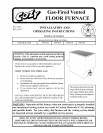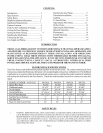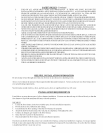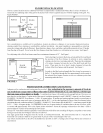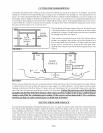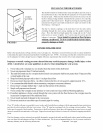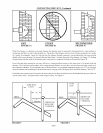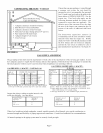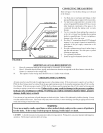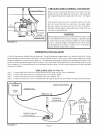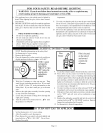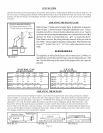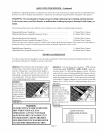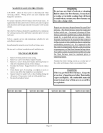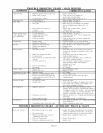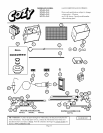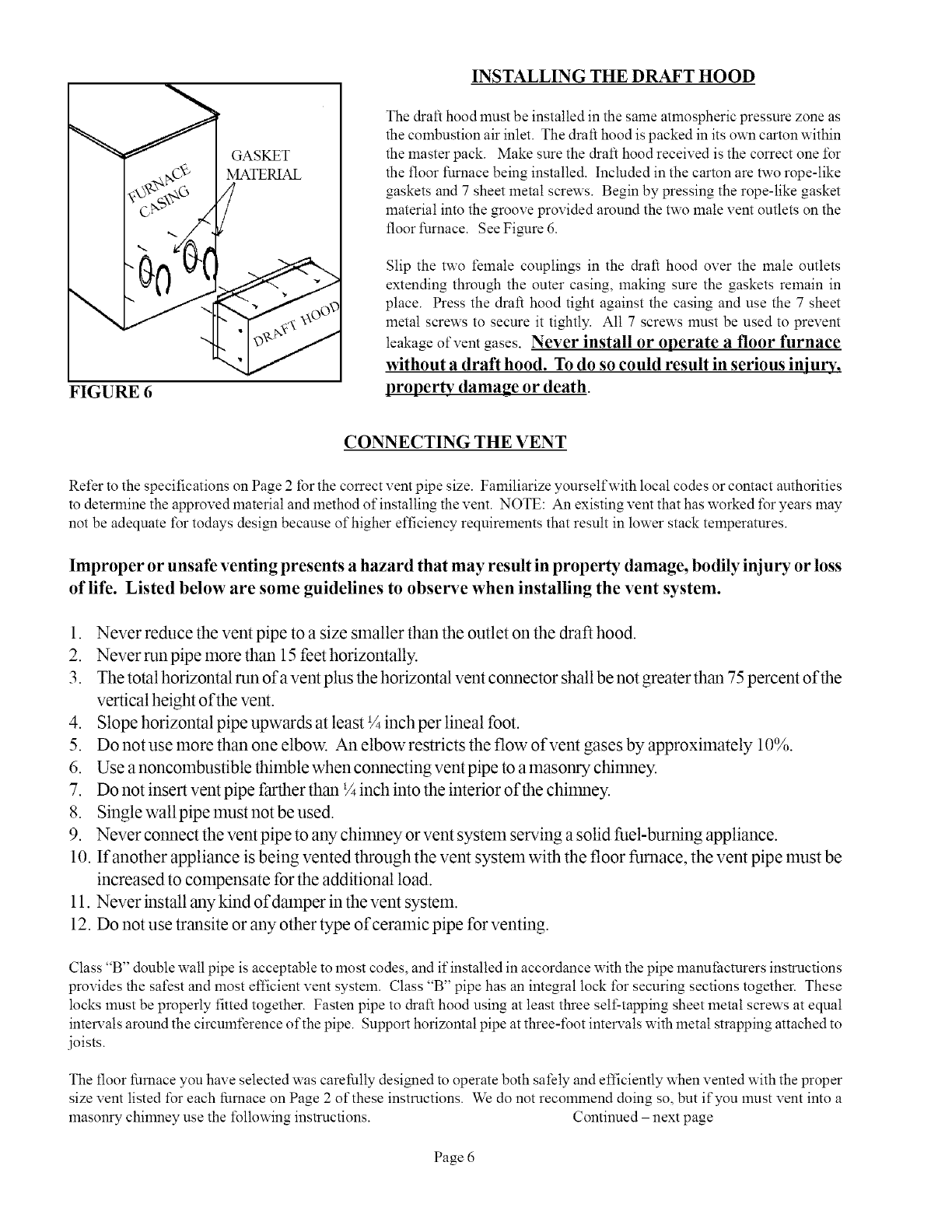
FIGURE 6
GASKET
MATERIAL
INSTALLING THE DRAFT HOOD
The draft hood must be installed in the same atmospheric pressure zone as
the combustion air inlet. The draft hood is packed in its o,am carton within
the master pack. Make sure the draft hood received is the correct one for
the floor furnace being installed. Included in the carton are two rope-like
gaskets and 7 sheet metal screws. Begin by pressing the rope-like gasket
material into the groove provided around the two male vent outlets on the
floor furnace. See Figure 6.
Slip the two female couplings in the draft hood over the male outlets
extending through the outer casing, making sure the gaskets remain in
place. Press the draft hood tight against the casing and use the 7 sheet
metal screws to secure it tightly. All 7 screws must be used to prevent
leakage of vent gases. Never install or operate a floor furnace
without a draft hood. To do so could result in serious injury,
property damage or death.
CONNECTINGTHEVENT
Refer to the specifications on Page 2 for the correct vent pipe size. Familiarize yourselfwith local codes or contact authorities
to determine the approved material and method of installing the vent. NOTE: An existing vent that has worked for years may
not be adequate for todays design because of higher efficiency requirements that result in lower stack temperatures.
Improper or unsafe venting presents a hazard that may result in property damage, bodily injury or loss
of life. Listed below are some guidelines to observe when installing the vent system.
1. Never reduce the vent pipe to a size smaller than the outlet on the draft hood.
2. Never run pipe more than 15feet horizontally.
3. The total horizontal mn of avent plus the horizontal vent connector shall be not greater than 75 percent of the
vertical height ofthe vent.
4. Slope horizontal pipe upwards at least */4inch per lineal foot.
5. Do not use more than one elbow. An elbow restricts the flow of vent gases by approximately 10%.
6. Use anoncombustible thimble when connecting vent pipe to amasonry chimney.
7. Do not insert vent pipe farther than V4inch into the interior of the chimney.
8. Single wallpipe must not be used.
9. Never connect the vent pipe to aw chimney or vent system serving a solid fuel-burning appliance.
10. If another appliance is being vented through the vent system with the floor furnace, the vent pipe must be
increased to compensate for the additional load.
11. Never install any kind of damper in the vent system.
12. Do not use transite or any other type of ceramic pipe for venting.
Class "B" double wall pipe is acceptable to most codes, and if installed in accordance with the pipe manufacturers instructions
provides the safest and most efficient vent system. Class "B" pipe has an integral lock for securing sections together. These
locks must be properly fitted together. Fasten pipe to draft hood using at least three self-tapping sheet metal screws at equal
intervals around the circumference of the pipe. Support horizontal pipe at three-foot intel-vals with metal strapping attached to
joists.
The floor furnace you have selected was carefully designed to operate both safely and efficiently when vented with the proper
size vent listed t\_r each furnace on Page 2 of these instructions. We do not recommend doing so, but if you must vent into a
masonry chimney use the following instructions. Continued next page
Page 6



